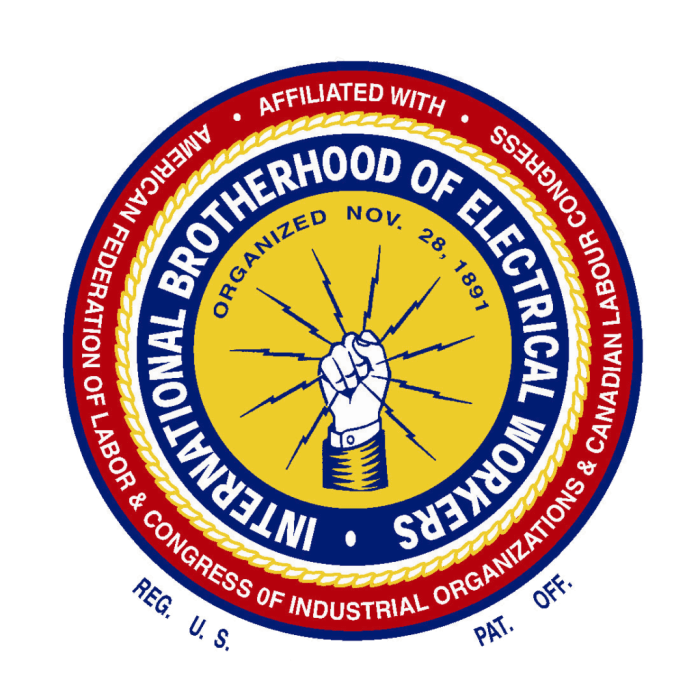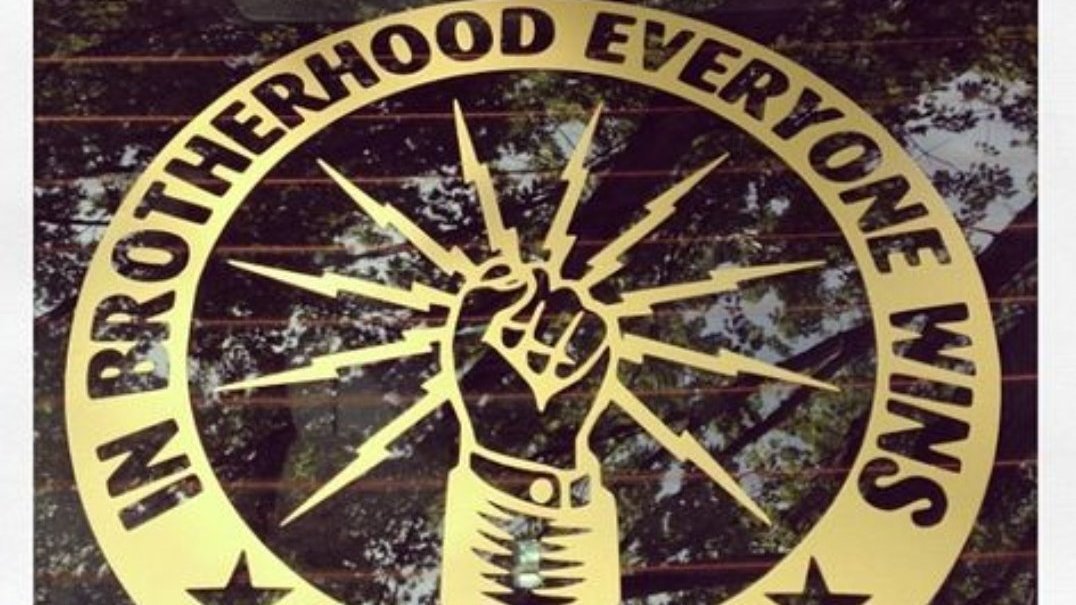When was the IBEW founded? This question delves into the rich history of the International Brotherhood of Electrical Workers (IBEW), an organization that has played a pivotal role in shaping the electrical industry for over a century.
Established in the late 19th century, the IBEW has witnessed the evolution of electrical technology, championed worker rights, and left an indelible mark on the electrical landscape.
History of the IBEW

The International Brotherhood of Electrical Workers (IBEW) is a labor union representing workers in the electrical industry in the United States and Canada. It was founded in 1891 as the National Brotherhood of Electrical Workers (NBEW), and its name was changed to the IBEW in 1908.
The IBEW was formed in response to the growing number of electrical workers in the late 19th century. These workers were often employed in dangerous and low-paying jobs, and they had little bargaining power with their employers. The IBEW was founded to improve the working conditions of electrical workers and to secure better wages and benefits.
Key Events and Milestones
- 1891: The NBEW is founded in St. Louis, Missouri.
- 1908: The NBEW changes its name to the IBEW.
- 1911: The IBEW affiliates with the American Federation of Labor (AFL).
- 1935: The IBEW helps to organize the National Labor Relations Act (NLRA).
- 1949: The IBEW merges with the United Electrical, Radio and Machine Workers of America (UE).
- 1955: The IBEW helps to organize the AFL-CIO.
- 1975: The IBEW merges with the International Union of Elevator Constructors (IUEC).
- 2005: The IBEW merges with the Communications Workers of America (CWA).
Founding of the IBEW

The International Brotherhood of Electrical Workers (IBEW) was founded on November 28, 1891, in St. Louis, Missouri. The organization was established by a group of electrical workers who were dissatisfied with the working conditions and wages in the electrical industry at the time.
Founding Members
The founding members of the IBEW included:
- Henry Miller, a lineman from St. Louis
- Frank J. McNulty, a wireman from Chicago
- Peter W. Collins, a lineman from Boston
- John P. Noonan, a wireman from New York City
- William J. Lawlor, a lineman from Philadelphia
Motivations for Founding
The IBEW was founded in response to a number of factors, including:
- Low wages and poor working conditions in the electrical industry
- The lack of a national organization to represent electrical workers
- The desire to improve the safety of electrical work
- The need for a collective voice to advocate for the interests of electrical workers
Early Years and Growth

The IBEW’s early years were marked by rapid growth and expansion. The organization quickly gained traction among electrical workers and expanded its membership and influence across the United States and Canada.
Membership Expansion
The IBEW’s growth was driven by its ability to organize and mobilize electrical workers, who were in high demand due to the rapid electrification of cities and industries. The union offered workers benefits such as job security, higher wages, and improved working conditions, which made it an attractive option for many.
Expansion of Influence
The IBEW’s influence extended beyond its membership. The union played a key role in shaping the electrical industry, advocating for safety regulations, apprenticeship programs, and industry standards. It also became a political force, lobbying for legislation that benefited electrical workers and the broader labor movement.
Challenges and Obstacles
The IBEW faced numerous challenges and obstacles in its early years. The organization was often met with resistance from employers who opposed unionization. It also faced competition from other unions and the challenges of organizing workers in a rapidly changing industry.
Key Strategies and Initiatives
Despite these challenges, the IBEW’s success was driven by its key strategies and initiatives. The union focused on organizing workers in all sectors of the electrical industry, from construction to manufacturing. It also established apprenticeship programs to train new workers and ensure a skilled workforce.
The International Brotherhood of Electrical Workers (IBEW) was founded in 1891, around the same time that two iconic entrepreneurs, Walt Disney and Ray Kroc, were making their mark on the world. Walt Disney , with his magical creations, and Ray Kroc, with his fast-food empire, became legends in their respective fields.
Meanwhile, the IBEW continued to grow, representing electrical workers and advocating for their rights.
Impact on the Electrical Industry

The IBEW has had a profound impact on the electrical industry, shaping standards, safety regulations, and worker rights. It has played a crucial role in the advancement of electrical technology and innovation, contributing to the development of electrical infrastructure, construction, and maintenance.
Shaping Industry Standards and Safety Regulations
The IBEW has been instrumental in establishing industry standards and safety regulations that ensure the safety and quality of electrical work. Through its involvement in code-making bodies and regulatory agencies, the IBEW has helped to develop and enforce codes and standards that govern electrical installations, materials, and equipment.
These standards have played a vital role in reducing electrical accidents and fatalities, protecting workers and the public alike.
Promoting Worker Rights
The IBEW has been a tireless advocate for worker rights in the electrical industry. Through collective bargaining, the IBEW has negotiated contracts that provide fair wages, benefits, and working conditions for its members. The IBEW has also fought for legislation that protects the rights of electrical workers, including laws that ensure equal pay for equal work and safe working conditions.
Advancing Electrical Technology and Innovation
The IBEW has played a significant role in the advancement of electrical technology and innovation. Through its training programs and partnerships with research institutions, the IBEW has helped to develop new technologies and techniques that have improved the efficiency, safety, and reliability of electrical systems.
The IBEW has also been involved in the development of new electrical materials and equipment, which have helped to reduce costs and improve performance.
Influence on Electrical Infrastructure, Construction, and Maintenance, When was the ibew founded
The IBEW has had a major impact on the construction and maintenance of electrical infrastructure. Through its skilled workforce, the IBEW has played a key role in the construction of power plants, transmission lines, and distribution systems. The IBEW has also been involved in the maintenance and repair of electrical systems, ensuring the reliable delivery of electricity to homes, businesses, and industries.
Q&A: When Was The Ibew Founded
When exactly was the IBEW founded?
November 28, 1891
Where did the founding meeting take place?
St. Louis, Missouri
Who were the key individuals involved in the founding of the IBEW?
Henry Miller, Frank J. McNulty, and Arthur E. Kennelly